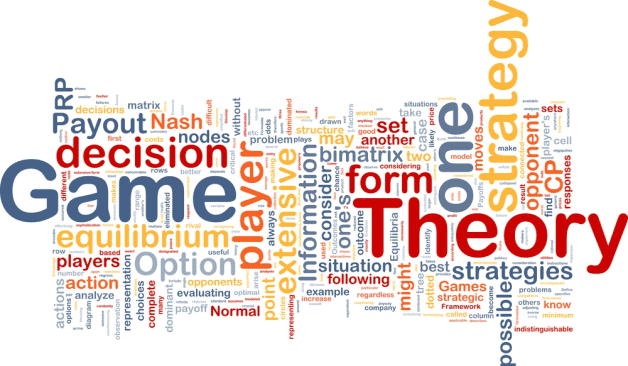
Game Theory and Stock Market
The stock market is an intriguing place to be in. At one moment, thousands of investors are buying and selling the same stock simultaneously, and both are in the hope of making a profit from the trade. It is difficult to understand investors' behavior as it is influenced by many factors, including economic indicators, corporate earnings reports, geopolitical events, and individual preferences.
Over the decades, financial analysts have turned to game theory to understand and analyze this complex ecosystem. It is a branch of mathematics and economics that studies decision-making in strategic situations.
Game theory provides some valuable insights into how rational individuals make choices in situations where the outcome depends not only on their own actions but also on the actions of others. In the context of the stock market, it can help you comprehend the strategies that investors employ, the dynamics of stock price movements, and the emergence of market anomalies. Let us look at game theory and the stock market.
Understanding Game Theory
In simple language, game theory studies interactive decision-making, where the outcome for each participant in the game depends on the actions of others. If you are playing one such game, you choose to make decisions taking into account the choices of others.
Here is where it gets complex - when you think of their choices, you need to factor in that they are thinking about your choices. In other words, you need to consider your thinking about their thinking. Drawing parallels, in the stock market, the players are the investors, and their choices, which can be to buy, sell, or hold a company stock constitute the strategic decisions that influence market dynamics.
Key concepts to understand
Let us understand how game theory links to the stock market by looking at key concepts of game theory:
Zero-Sum game: It states that one player's gain is another player's loss. In the stock market, investors can look at the stock market as a zero-sum game. When they do it, it can lead to more aggressive trading strategies, especially where they can exploit short-term price movements. The F&O market may be considered a perfect outcome of this concept - one investor's loss is another investor's gain. However, there is no single buying/selling in the market - an investor will place multiple orders, and therefore, in the long run, it would be a 'positive sum' or 'negative sum' game. It won't be wrong to say that in the long run, all the players (investors) in the game can be 'winners' or 'losers'.
Nash Equilibrium: Another interesting concept of game theory is Nash equilibrium. The Nash equilibrium arises when no player can improve their situation by unilaterally changing their positions. Have you seen Nash equilibrium in the stock market? You would have multiple times. It happens when the stock price of a particular company stabilizes due to a balance between sellers and buyers. It represents a price where no investor in the market has an incentive to deviate from their current strategy.
Behavioral Biases: Behavioral economics, a field closely related to game theory, examines how psychological biases influence decision-making. Understanding investor sentiment, overconfidence, and herding behavior can provide valuable insights into stock market movements.
What can investors learn from game theory?
Below are a few things you can learn from game theory and apply in your investment journey:
Strategic Thinking: Game theory teaches you to think strategically and consider the potential actions and reactions of other market participants. By anticipating how other investors may respond to different market conditions, you can make more informed decisions in the stock market.
Behavioral Biases: Game theory dovetails with behavioral economics to highlight the impact of psychological biases on investment decisions. You can learn to recognize and overcome biases like overconfidence, loss aversion, and herding behavior, which can lead to suboptimal investment choices.
Market Manipulation: Game theory can help you identify potential market manipulation strategies and understand the risks associated with them. Recognizing manipulation tactics can lead to more cautious trading decisions.
Portfolio Optimization: You can use game theory to optimize your investment portfolios. It involves considering different asset allocation strategies and their potential outcomes, balancing risk and return to achieve investment objectives.
Decision Analysis: Game theory provides a structured framework for decision analysis. You can use decision trees and game matrices to assess the likely outcomes of different investment choices and make more rational decisions.
Conclusion
Game theory fits in the stock market narrative but not completely (zero-sum game). By analyzing the decisions of rational players, you can gain valuable insights into trading (investing) strategies, market dynamics, and pricing mechanisms. However, it is essential to recognize that real-world markets are complex, and behavioral factors can significantly impact outcomes.










